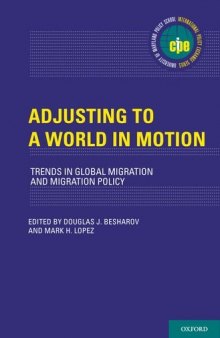 جزییات کتاب
جزییات کتاب
International migration has reached new heights since the 1960s. Altogether, some 215 million people live in countries other than their countries of birth, and according to surveys, another 700 million say they would leave their homes and move to another country if they could. Nations-both sending and receiving-have responded to this growing international migrant flow with new laws and domestic programs. In receiving countries, they include laws and programs to control entry, encourage high-skilled immigration, develop refugee policy, and speed assimilation. In sending countries, governments are implementing and experimenting with new policies that link migrant diasporas back to their home countries culturally or economically-or both. This volume contains a series of thoughtful analyses of some of the most critical issues raised in both receiving and sending countries, including US immigration policy, European high skilled labor programs, the experiences of migrants to the Gulf States, the impact of immigration on student educational achievement, and how post-conflict nations connect with their diasporas. We hope that the volume helps readers draw lessons for their own countries, and, hence, is offered in the spirit of mutual learning within a continued international dialogue of research and analysis on migration.



 دانلود کتاب
دانلود کتاب

 جزییات کتاب
جزییات کتاب





 این کتاب رو مطالعه کردید؟ نظر شما چیست؟
این کتاب رو مطالعه کردید؟ نظر شما چیست؟
